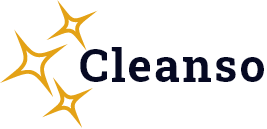When you're expecting, a natural
instinct kicks in to protect your baby and yourself from anything harmful. This
concern often extends to everyday items, including cleaning products. While
most household cleaners are safe when used correctly, some chemicals can pose
risks, especially with prolonged exposure. Let’s explore how to clean safely
during pregnancy and which products to avoid.
Are Cleaning Products Harmful During Pregnancy?
For most household cleaning
products, the risk of harm during pregnancy is very low. However, prolonged
exposure to certain chemicals could increase the chances of health problems for
you and your baby.
Some substances, known as
teratogens, are linked to birth defects. Teratogens are typically associated
with smoking, alcohol, and some medications, but they can also be found in
everyday products around the house. Knowing which chemicals to avoid is key to
keeping your baby safe.
How Harmful Chemicals Enter Your Body
Chemicals can enter your body in two
main ways:
- Breathing
in fumes: Toxic substances released into the
air can be inhaled and pass through your bloodstream to your baby.
- Absorbing
through skin: Direct
contact with harmful chemicals can allow toxins to enter your body.
To minimize exposure, it’s important
to take precautions and make informed choices when cleaning during pregnancy.
Common Cleaning Products That Are Usually Safe
Many everyday cleaning products are
generally safe for use during pregnancy, as long as you follow instructions:
- All-purpose
cleaners
- Window
cleaners
- Dishwashing
and laundry detergents
- Non-toxic
or chemical-free cleaners
However, avoid heavy duty cleaners
like bleach and oven cleaners, as these can emit toxic fumes that may harm your
baby.
Tips for Cleaning Safely During Pregnancy
While you can’t avoid every
chemical, there are ways to limit exposure and ensure a safer cleaning routine:
1.
Ventilate Your Space
Always open windows and doors while
cleaning to allow fresh air to circulate. This prevents the buildup of fumes
and reduces the amount of chemicals you breathe in.
2.
Wear Protective Gear
Use gloves, long sleeves, and a mask
if necessary to protect your skin and minimize inhalation of fumes.
3.
Use Natural Cleaning Alternatives
Natural products like white vinegar,
baking soda, and lemon can often replace harsh cleaners. For example:
- Use
white vinegar for cleaning glass or countertops.
- Mix
baking soda with water for scrubbing ovens or tough stains.
These options are safer and just as
effective for many cleaning tasks.
4.
Do Your Research
Check labels on cleaning products
and research their ingredients. Websites like the Environmental Working Group
(EWG) can help you identify safe products for you and your baby.
5.
Avoid Mixing Products
Mixing cleaning products can cause
chemical reactions that release harmful fumes. Always use products as directed
on the label.
6.
Ask for Help
If cleaning makes you feel dizzy or
nauseous, ask for assistance. Friends, family, or neighbors can step in to
handle more challenging tasks.
7.
Hire Professional Cleaners
A professional cleaning service can
take the stress out of cleaning. Look for companies that use eco-friendly
products and know how to clean safely around pregnant clients.
Cleaning Products and Chemicals to Avoid
Certain products and chemicals
should be avoided completely during pregnancy to minimize risk:
Harmful
Cleaning Products
- Oven
Cleaners: These contain strong chemicals that
emit toxic fumes.
- Aerosol
Sprays and Air Fresheners:
Aerosols release fine mist particles into the air that are easy to inhale.
These can cause respiratory problems for you and your baby.
Chemicals
to Watch For
Some chemicals are known to pose
risks during pregnancy:
- Glycol Ethers
These are among the most toxic substances found in household cleaners. Glycol ethers are linked to birth defects and, in rare cases, miscarriages. Look for these names on labels: - Butoxyethanol
(EGBE)
- Methoxydiglycol
(DEGME)
- Phthalates
Often found in fragranced products like air fresheners and fabric softeners, phthalates can disrupt hormones and harm your baby. Stick to fragrance-free products when possible. - Parabens
Although not definitively proven harmful, parabens can mimic estrogen in the body, which may cause concerns during pregnancy. Avoid products listing these ingredients: - Methylparaben
- Propylparaben
- Butylparaben
How to Make Cleaning Easier During Pregnancy
Cleaning while pregnant can feel
overwhelming, especially if certain products make you feel sick. Here are a few
ways to make the process more manageable:
Simplify
Tasks
Break cleaning into smaller steps
and focus on one area at a time.
Take
Breaks
Pregnancy can leave you feeling
tired, so don’t hesitate to take frequent breaks to rest.
Delegate
If a task feels too demanding, hand
it over to someone else. There’s no harm in asking for help when you need it.
Professional Cleaning Services
If you’re worried about chemical exposure
or simply want a stress free option, hiring professional cleaners is a great
solution. Professional cleaning services often use eco-friendly products and
ensure proper ventilation to protect their clients.
At Wink Cleaning, we prioritize your
health and safety by using natural, environmentally friendly products. Whether
you need your carpets cleaned or your oven scrubbed, our trained experts handle
everything with care. Contact us today for a worry free cleaning experience.
Final Thoughts
During pregnancy, protecting
yourself and your baby from harmful chemicals is a top priority. By avoiding
certain products, using natural alternatives, and taking precautions like
proper ventilation and protective gear, you can keep your home clean and safe.
When in doubt, consult your
healthcare provider for advice on cleaning safely during pregnancy. And
remember, it’s okay to ask for help or hire professionals to lighten the load.
A clean, healthy home is essential, but your wellbeing always comes first.


